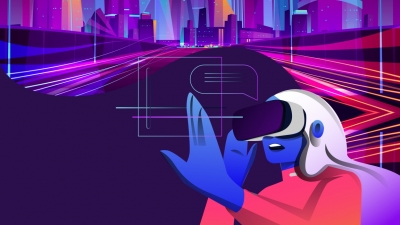
The term, first coined by science fiction writer Neal Stephenson in 1992 for his novel ‘Snow Crash’, is a virtual environment that one can go inside of instead of looking at something on the screen. It is the Internet brought to life. If and when the metaverse becomes a reality, it will be a space where endless interactions can take place between people for meetings, work and play using gadgets such as virtual reality headsets, smartphone apps and augmented reality glasses.
It could also include other aspects of online life such as e-commerce shopping and social media.
What can you do there?
The possibilities are endless as the technology comes to life and evolves. But for starters, you could attend a virtual concert, try on digital clothing, go on a trip with friends and visit the zoo. The metaverse will also take video call interactions to the next level. Instead of meeting each other on the laptop screen, you can meet and interact with each other in a virtual house. It would be like you are all there together, except not physically. The metaverse is the evolution of the Internet. But for it to work, technology giants will have to collaborate to create one giant metaverse.
Which companies are going all in?
We know Facebook, now Meta, is giving everything it has to make this metaverse a reality. But is it the only company making strides? Not really. Nvidia, the chipmaker company, Epic Games, the company behind Fortnite, and Microsoft are some of the other companies working towards making the metaverse a reality.
The pros and cons
The idea of a metaverse seems exciting. It could bring people separated by borders together in one virtual space and give them the feeling of being together almost physically. The Metaverse might also aid education and learning as students get to experience abstract concepts, making it easier for them to understand and process such concepts. However, it has its own demerits. With hate on social media getting worse every day, imagine the impact it would have if it is delivered in a virtual room which is meant to feel real?
Similarly, the metaverse might make youngsters lead a second life. very different from who they are in reality. It could entice them into thinking they are more likable in the virtual world, making them get addicted and slowly disconnecting them from the real world happenings.
Over everything else, while the Internet in itself hasn’t penetrated into several parts of the world due to high costs of connection, upgrading to the metaverse might be difficult to impossible for a few due to the need for a high-end connection and investment in gadgets such as virtual reality glasses. It could actually further the digital divide.
Picture Credit : Google




